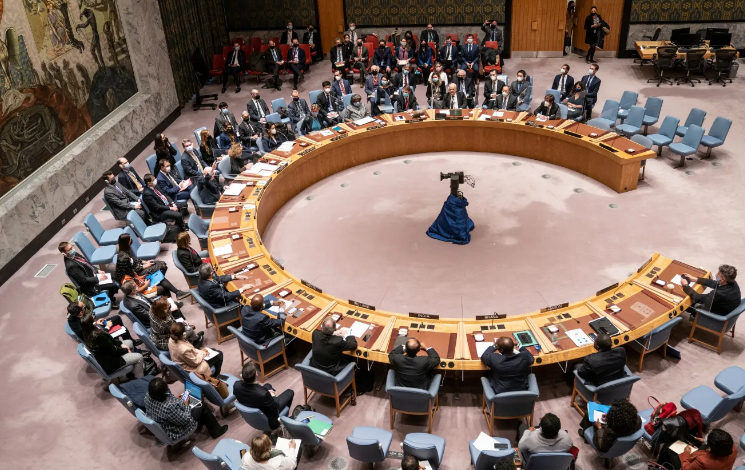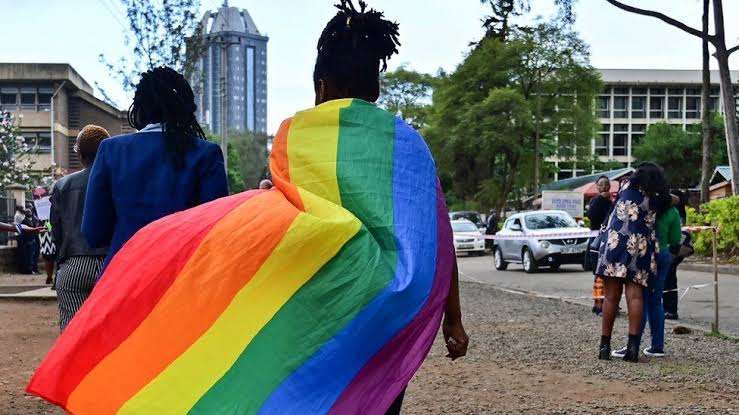
Faith Nyasuguta
The United Nations Security Council will today, Monday, October 2, vote on a resolution that will see a non-UN multinational force led by Kenya deployed to Haiti to combat gangs and restore security.
The council will develop the framework for and authorize a one-year deployment of an international force, with a review after nine months.
If approved by the UN, Kenya will deploy its force to Haiti by January 2024.
Leaders of the mission would be required to inform the council of the mission’s goals, rules of engagement, financial needs and other matters before a full deployment.
“The 15 members of the Council will consider approving what is known as a Chapter VII provision of the UN Charter that authorizes the use of force after all other measures to maintain international peace and security are exhausted,” UN News reports.
Caribbean nations and members of the CARICOM regional group, including Jamaica, the Bahamas and Antigua and Barbuda have also expressed their readiness to support the mission that will be led by Kenya’s force.
The Bahamas has committed 150 persons to support the multi-national force, while Jamaica said it cannot reach the 1,000 offered by Kenya, it “will give what we can.”
Only officers from formation units in the National Police Service of Kenya will be deployed to Haiti.
Last month, the US government promised to provide logistics and Sh14.5 billion ($100 million) to support a Kenyan-led force.
The resolution notes that the Security Council intends to impose additional sanctions on Jimmy Cherizier, known as “Barbecue,” who heads Haiti’s biggest gang alliance.
Cherizier, a former police officer, recently warned that he would fight any armed force suspected of abuses.
More than 1,000 officers will be picked from the Rapid Deployment Unit, Anti Stock Theft Unit, General Service Unit, and Border Patrol Unit to form a larger team for deployment.
These officers have paramilitary training and are likely to work well with other personnel from countries that have agreed to send theirs to Haiti for the same mission.
A Kenyan team on an assessment mission led by Deputy Inspector General of Administration Police Noor Gabow visited Haiti and UN headquarters in August 2023 and gave the operation a green light.
Other sources said top police commanders have been meeting to prepare for presentations before the National Security Council and Parliament for possible approval.
A US-drafted resolution says the force would help build the capacity of local police planning, conducting joint security support operations and also secure critical infrastructure sites and transit locations such as the airport, ports, and key intersections in Haiti.
According to the UN, it has taken long to establish the mission as “a major sticking point has always been which country would step forward to lead what could be a very complicated and risky mission.”
The force would be allowed to provide operational support to Haiti’s National Police, which is underfunded and under-resourced, with only some 10,000 active officers in a country of more than 11 million people.
The resolution said the force would help build capacity of local police “through the planning and conduct of joint security support operations as it works to counter gangs and improve security conditions in Haiti.”
The force would also help secure “critical infrastructure sites and transit locations such as the airport, ports, and key intersections.”
Powerful gangs have seized control of key roads leading from Haiti’s capital to the country’s northern and southern regions, disrupting the transportation of food and other goods.
Passage by the Security Council would authorize the force to “adopt urgent temporary measures on an exceptional basis” to prevent the loss of life and help police maintain public safety.
In the voting system, according to Article 27 of the UN Charter, each member of the Security Council shall have one vote and the decisions of the Security Council on procedural matters shall be made by an affirmative vote of nine members.
Kenya’s role in the mission has been welcomed by world leaders, with US President Joe Biden hailing President Ruto for the move.
Kenya has proposed sending 1,000 police officers. In addition, Jamaica, the Bahamas, and Antigua and Barbuda have pledged to send personnel.
Kenya formally established diplomatic relations with Haiti on September 21, after an agreement signed by President William Ruto and Haiti Prime Minister Ariel Henry.
From January 1 to August 15, more than 2,400 people in Haiti were reported killed, more than 950 kidnapped and 902 injured, according to the most recent UN statistics.
More than 200,000 others have been displaced by violence, with many crammed in makeshift shelters after gangs pillaged their communities.
RELATED:




